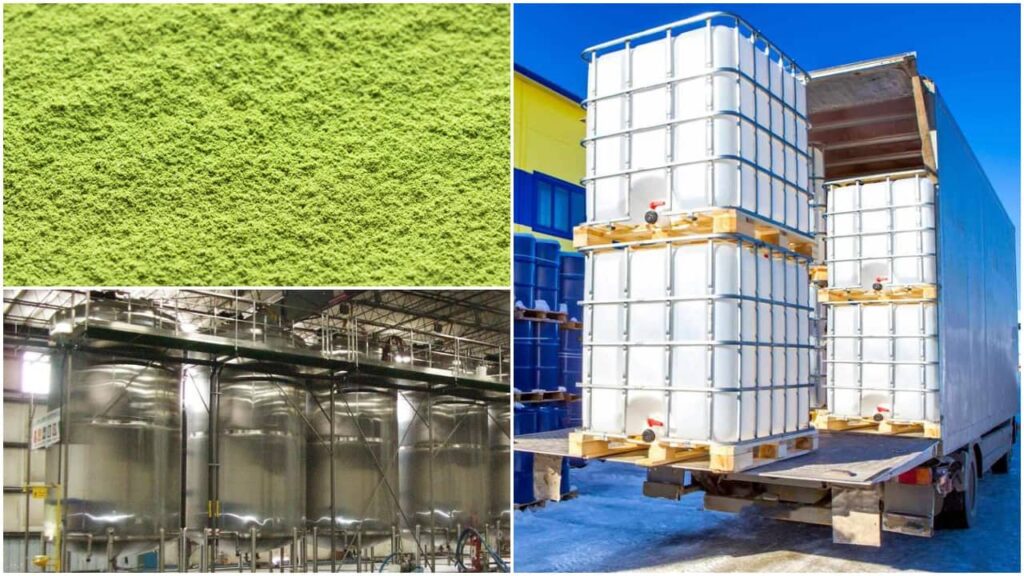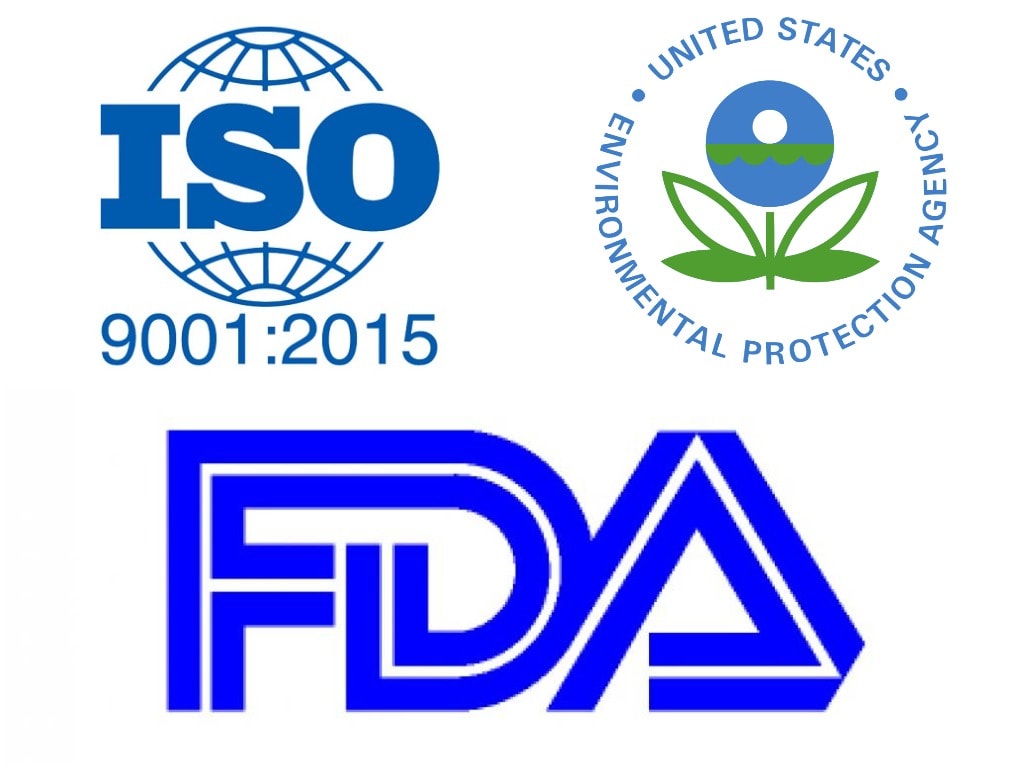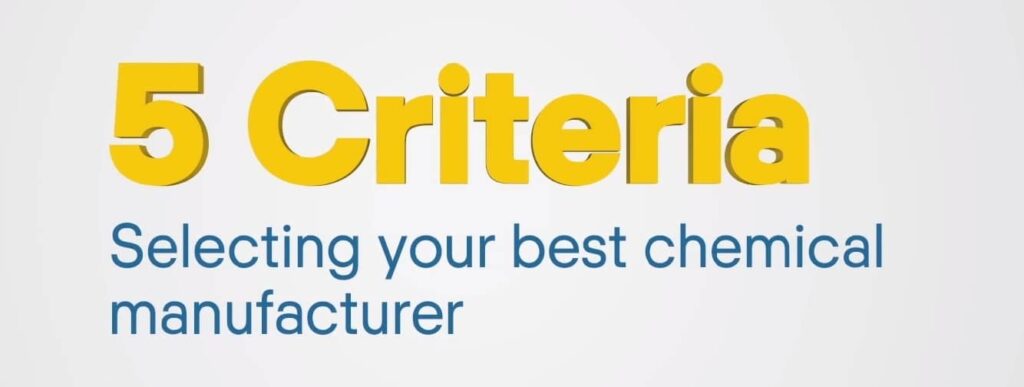14 Scenarios Where Partnering with a Chemical Manufacturer Makes Sense
- November 15, 2021
- News
America’s chemicals manufacturing industry is expected to grow by a larger share in 2022 than in any other market in the world.
Pandemic-related supply chain problems are expected to continue, however.
In other words, with demand surging and supplies hampered, it’s never been more urgent to maximize efficiency in your chemical production operations.
For many companies, this will mean using a contract manufacturer.
We’re digging into some of the many scenarios in which working with a chemical contract manufacturer could be the right move for your business.
Contract Manufacturing vs. Toll Blending
Contract manufacturing, or custom manufacturing, involves outsourcing the production of chemicals to a dedicated chemical manufacturer. Unlike purchasing chemicals from a supplier, the contract manufacturing customer is able to set the specifications and requirements for the product at an agreed-upon pricing structure.

“Toll blending” or “toll manufacturing” are sometimes used interchangeably with contract manufacturing, although the range of services and capabilities on offer by toll blenders is typically more limited. For example, a chemical contract manufacturer like Seatex sources all raw materials and can handle logistical tasks such as packaging and transportation. The average toll blender won’t be able to provide the turn-key service of a custom manufacturer.
Alternatives to Contract Manufacturing
There are two primary alternatives to outsourcing your chemical manufacturing:
1. Private labeling
Buying another company’s chemical formulation packaged with your branding is called private labeling. This strategy is a particularly good fit for smaller companies that want to quickly get a new product on their store shelves without investing a lot of time into product development. However, private labeling customers have little control over the product’s specifications or pricing, which can change at any time.2. Develop and manufacture the product yourself
As we discuss below, there are a wide variety of reasons why a company would decide not to manufacture a chemical themselves, but creating your chemicals in-house does offer the ultimate levels of control and IP security, although it may not be the most efficient or cost-effective route.When Contract Manufacturing Could Be Right for You
By far, the number one reason companies choose to engage contract manufacturers is savings.
Whether it’s hiring and training the right personnel, investing in and maintaining expensive equipment, or spending hundreds of man-hours trying to keep and earn compliance, chemical manufacturing is a serious undertaking.
Here are some of the scenarios in which contract manufacturing may be advantageous for your company:
#1 You lack the manufacturing capabilities.
The equipment alone needed to produce a common chemical such as sulfuric acid can be a multi-million dollar expenditure. Even some chemical manufacturers won’t have the ability to blend both pilot-scale batches and large orders, or both liquid and powder compounds, due to equipment constraints.
#2 You lack the expertise.
In addition to equipment–which is often highly specialized–there’s the demand for people that know how to operate it safely and optimally. Whether it’s hazardous chemicals, waste management, or strict regulatory standards, there are numerous hurdles that hiring a chemical contract manufacturer lets you avoid.
Take Extra Care Transporting Hazardous Chemicals
Contract manufacturers can be used to supplement, not supplant, your in-house manufacturing if you’re already maxing out your daily output but your customers demand more. If that demand ever declines, you can disengage from your contract manufacturer, or you may decide the economics are right to transfer all production to the blender.
#4 Your own manufacturing plant has suffered from equipment failure or downtime.
Having a reliable partner with a redundant power supply in place is a way to insulate your operations from the whims of the grid or other unforeseen interruptions.
#5 Your product hasn’t yet proven its market viability.
Especially for low-volume or low-margin products, a trial period in which you can prove the concept before expending capital investment could be a sound strategy. This way you preserve the ability to pivot quickly, if necessary, or scale up rapidly.
#6 You want access to wholesale raw material pricing.
Contract manufacturers can secure special pricing by buying in bulk and pass the savings onto you, lowering your input costs and improving profitability.
#7 You want to free up resources.
Instead of trying to reinvent the wheel of chemical manufacturing, outsourcing lets you focus on product or brand development, sales, marketing, distribution, and everything else that demands your time.
#8 You want to maximize the efficiency of your own facilities.
Maybe you have the expertise, the capacity, the people…but not the incentive. A contract manufacturer can take a lower-value product off your hands while you focus on areas where you have a competitive advantage.
#9 You want to get the product to market quickly.
Any toll blender can save you time in assembling the labor and equipment you’d need to produce a chemical yourself, while a truly one-stop shop contract manufacturer could remove the need to find vendors for raw materials, as well as handle packaging and delivery.

#10 You need to be able to respond to changes in demand.
Contract manufacturers are much better equipped to weather sudden surges or drop-offs in demand. If either is common in your business cycle or demand is naturally seasonal, using a third party manufacturer can help you keep from frustrating eager customers or loading up on too much overhead.
#11 You’re open to collaboration.
One of the perks of using a contract manufacturer is getting to benefit from their impartial advice. They may be able to identify a way to optimize your process that could pay dividends even long after your relationship is over.
#12 You want a high-quality product.
A contract manufacturer can take the ‘trial-and-error’ out of commercialization, thanks to established quality control processes that a new company might not have.

#13 You want predictable costs.
During the contract period with a contract manufacturer, the price variation for things like raw materials, regulation changes, equipment repairs, facility upgrades, and logistics is removed, making for easier budgeting and better decision-making.
#14 You want production to be closer to the final destination.
For certain items such as frozen products, warehousing and shipping long distances represent an enormous cost. The ability to select a contract manufacturer close to your final destination–or even better, one with multiple locations–can secure huge savings for your business.
Make the Right Choice for Your Contract Manufacturer
The decision to outsource is only half the battle; now you have to select a firm to partner with. The contract manufacturer you select could make the difference between unnecessarily complicating your operations and unlocking whole new levels of profitability.
Follow the principles in our guide to selecting a chemical manufacturer to ensure your choice is the best fit for you.










